Text

This view is therapeutic. - Author: LavenderStaticy
5K notes
·
View notes
Text

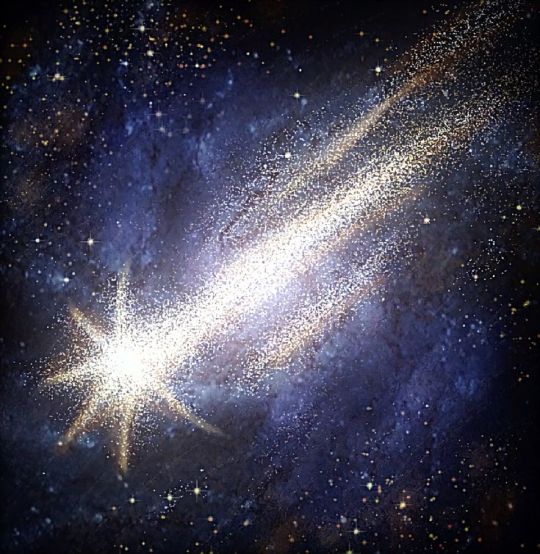
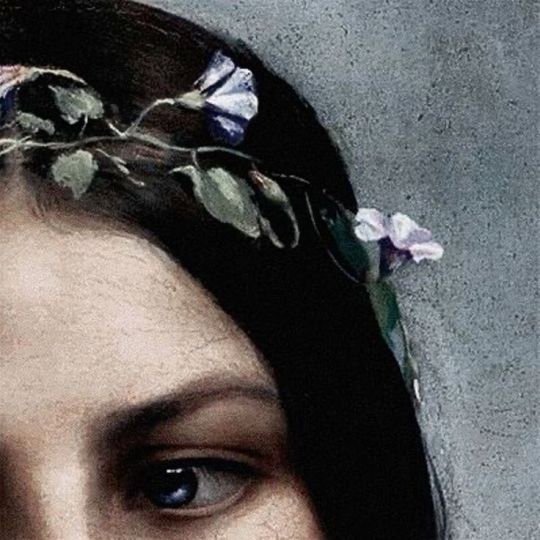
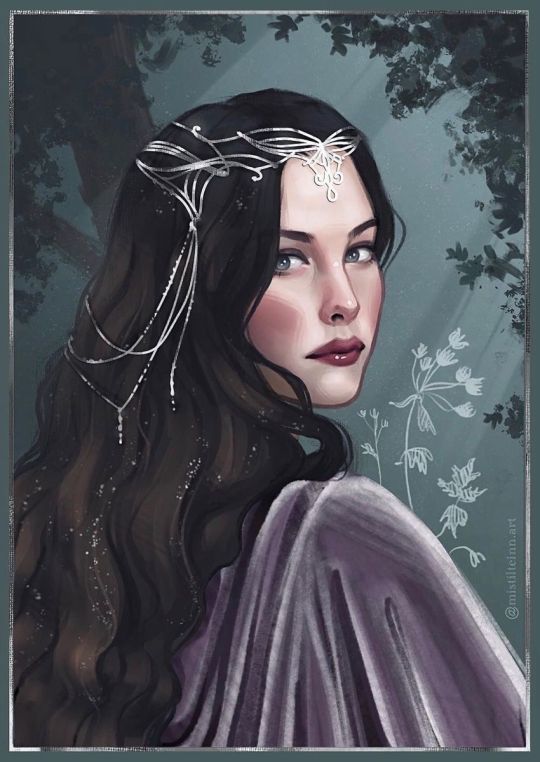

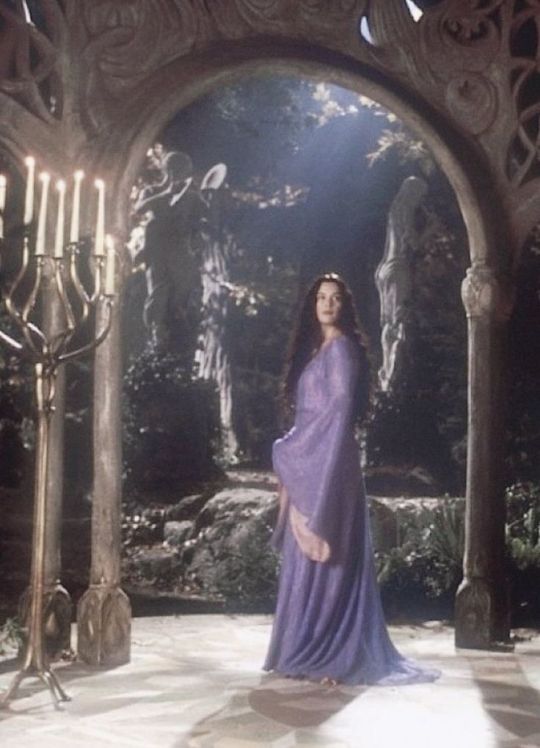
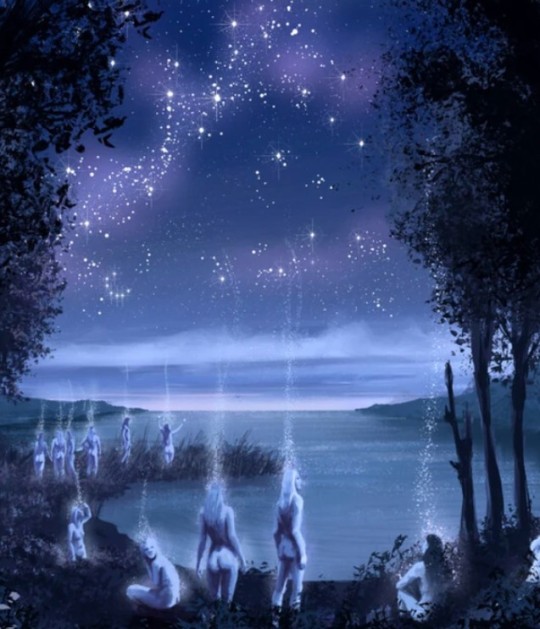
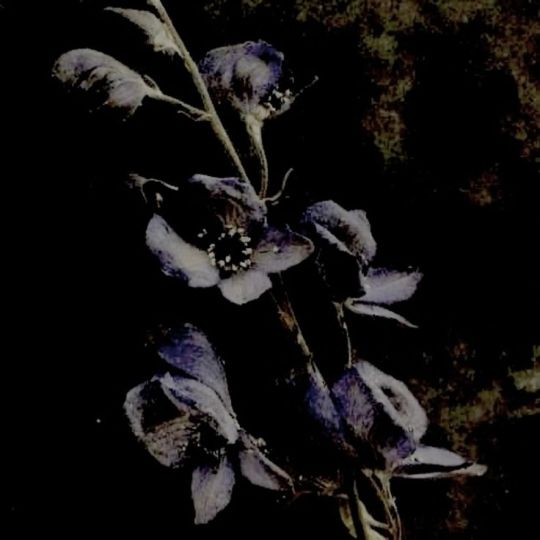

“𝐼𝑚𝑚𝑜𝑟𝑡𝑎𝑙 𝑤𝑒𝑟𝑒 𝑡ℎ𝑒 𝐸𝑙𝑣𝑒𝑠, 𝑎𝑛𝑑 𝑡ℎ𝑒𝑖𝑟 𝑤𝑖𝑠𝑑𝑜𝑚 𝑔𝑟𝑒𝑤 𝑓𝑟𝑜𝑚 𝑎𝑔𝑒 𝑡𝑜 𝑎𝑔𝑒.” -The Silmarillion
𝐓𝐡𝐞 𝐋𝐢𝐟𝐞 𝐨𝐟 𝐚𝐧 𝐄𝐥𝐟 ⋆🌿˚。⋆📜⋆˚࿔
Immortal, Graceful, Wise.
The Elves were the first and eldest Children of Ilúvatar, considered the fairest and wisest of the earthly race of Arda.
𝑺𝒑𝒂𝒏 𝒐𝒇 𝑻𝒊𝒎𝒆
Their lives are not measured in decades, but in ages; their bodies do not wither with time, though sorrow may leave its mark. They may be slain or die of grief, but they do not pass into old age.
Elves awaken at Cuiviénen, in the First Age, and many of those still alive in the Third Age were born under starlight long before the sun rose.
Elves' bodies developed slower than those of Men, but their minds developed more swiftly. Physical puberty is generally complete by their fiftieth year (by age fifty they reach their adult height), but they are not considered full-grown until a hundred years have passed.
𝑫𝒂𝒊𝒍𝒚 𝑳𝒊𝒇𝒆
🕯 MORNING:
Elves rise with the dawn not from sleep, but from trance. Unlike Men, they do not require nightly rest, but enter a waking dream to recover their strength. Their mornings begin with silence; poems, song, or quiet movement through forest and stone. Some attune themselves to the trees, the wind, or the memory of the stars.
🌿MIDDAY:
They tend to gardens, study lore, train with blade or bow, craft wonders in wood, gem, and silver. Elves are aesthetic beings; their daily work is an act of artistry, not labor. A Noldorin smith’s hammer is rhythmic as poetry. A Vanyarin singer might coax open a blossom.
🦉EVENING:
At dusk, they feast together; not in gluttony, but in fellowship. Lembas and mead, fruits and wild herbs, roasted meats caught in the wild. Elves value storytelling, i.e., songs of past kin, of grief and glory, and they will often dance under moonlight.
𝑳𝒐𝒗𝒆 𝒂𝒏𝒅 𝑴𝒂𝒕𝒆𝒔
Elves marry for love, or at least with free will from both parties, typically early in life. Monogamy is practised and adultery is unthinkable. By their very nature, they are "seldom swayed by the desires of the body" or influenced by lust.
They marry only once for it was ruled by Manwë that, "'since the Elves are by nature permanent in life within Arda, so also is their unmarred marriage.'
Finwë, the King of the Noldor, was an exception. After his first wife died, from passing the majority of her life into Fëanor, and refused to be re-embodied, Finwë was permitted to marry again. This was pronounced by Námo as the 'Statute of Finwë and Míriel'.
Spouses may choose each other, in their youth, and be betrothed long before they are married. The betrothal is subject to parental approval from both houses unless the parties are of age and intend to marry soon. At which point, the betrothal is announced at a meeting of the two houses, during which the couple exchange silver rings. The betrothal lasts at least a year.
A betrothal is revocable by a public return of the rings, which will then be molten, but revocation was rarely needed because "the Eldar do not err lightly" in the choice of their partner.
After their formal betrothal, the couple appoints a time for the wedding when at least a year has passed.
𝑺𝒌𝒊𝒍𝒍𝒔 𝒂𝒏𝒅 𝑻𝒓𝒂𝒊𝒏𝒊𝒏𝒈
Every Elf is a polymath of sorts, they are versed in:
Craftsmanship: Gems, weapons, embroidery, sculpture
Combat: Archery, swordplay, horseback riding
Lore: Language, stars, music, history, healing
Magic: Subtle enchantments woven into word and song (not flashy spells, but power from their spirit)
They are taught from a young age by loremasters, warriors, or kin. Some become great captains like Glorfindel, others master healers like Elrond, or singers of power like Lúthien.
𝑺𝒐𝒖𝒍𝒔 𝒂𝒏𝒅 𝑺𝒐𝒓𝒓𝒐𝒘
Elves have a deep memory; they do not forget. All joy and all tragedy lives within them. Wars of the First Age still haunt their dreams. Many elves of the Third Age carry grief like a cloak: the Kinslaying, the fall of Gondolin, the Doom of the Noldor.
If slain, their spirits pass to the Halls of Mandos in Valinor, where they may be re-embodied after long reflection. Some, like Fëanor, refuse the call. Others return changed.
They fear not death; but diminishment.
𝑯𝒐𝒎𝒆𝒔 𝒂𝒏𝒅 𝑹𝒆𝒈𝒊𝒐𝒏𝒔
Elves live in halls carved from stone, canopies of light-dappled leaves, or white towers beside the sea.
𝕽𝖎𝖛𝖊𝖓𝖉𝖊𝖑𝖑 (𝕴𝖒𝖑𝖆𝖉𝖗𝖎𝖘) – refuge of lore and song, ruled by Elrond
𝕷𝖔𝖙𝖍𝖑𝖔́𝖗𝖎𝖊𝖓– golden wood of Galadriel and Celeborn, timeless and enchanted
𝕿𝖍𝖊 𝖂𝖔𝖔𝖉𝖑𝖆𝖓𝖉 𝕽𝖊𝖆𝖑𝖒 (𝕿𝖍𝖗𝖆𝖓𝖉𝖚𝖎𝖑’𝖘 𝕶𝖎𝖓𝖌𝖉𝖔𝖒) – forest-stronghold under the earth
𝖁𝖆𝖑𝖎𝖓𝖔𝖗– in the Undying Lands beyond the sea, where the light of the Two Trees lingers
𝑹𝒐𝒍𝒆 𝒊𝒏 𝑴𝒊𝒅𝒅𝒍𝒆-𝑬𝒂𝒓𝒕𝒉
Elves are keepers of the old world, resisting decay. They fight not for dominion but to preserve memory, beauty, and freedom. Many are leaving; sailing West to Valinor, but those who remain do so out of love or duty.
They are not above any other race, but beside them; different in purpose, not in worth.
𝑭𝒖𝒏 𝑭𝒂𝒄𝒕𝒔 𝒂𝒏𝒅 𝑳𝒐𝒓𝒆
Besides being considered more beautiful than men, Elves were also generally taller. Their hair colour varied; but the basic rules were that the Noldor generally had dark hair (brown or black), the Vanyar golden, and the Teleri silver or dark. Their eyes are usually described as grey or blue.

81 notes
·
View notes














